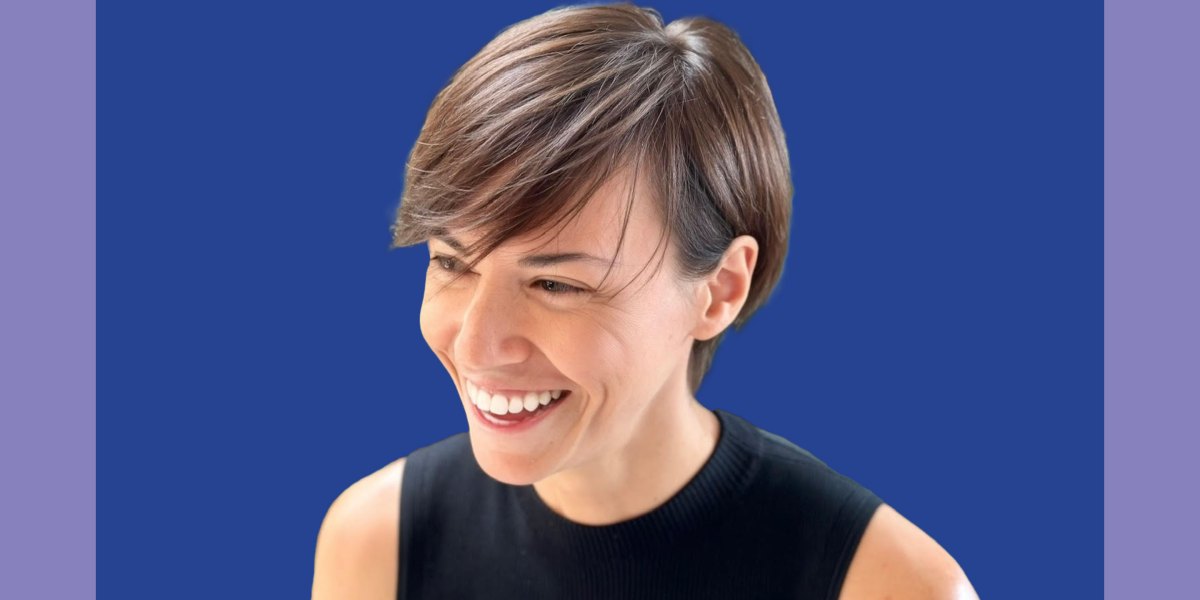
An early-stage venture capitalist is asking a question that few people may want to consider, particularly now: Is there untapped potential among founders over 50?
“Silicon Valley investors keep ignoring everyone older than even 40,” Katerina Stroponiati, who founded her firm, Brilliant Minds, in April, told Fortune. “They glorify youth, and it’s a misallocation of capital.” New York-based Brilliant Minds exclusively invests in founders 50 and older.
The veteran VC leader—and 40-year-old millennial—has long maintained an interest in breaking the stigma of aging and conducting longevity research. (She’s undergone a battery of tests herself.) She thinks the ageism currently coursing through contemporary chatter, as well as the VC landscape, is a net-negative for everyone.
“Besides age, there’s a lot of research that founders over 50 are three times as likely to succeed—have things like an IPO or an exit event,” she said. “But the Silicon Valley people are focusing capital on 20-year-olds.”
The idea for Brilliant Minds, which is industry-agnostic, was percolating for years before its launch this spring, Stroponiati said. “I’ve been an investor for over a decade, and at my previous fund, I invested in over 40 startups,” she said. As an angel investor, she noticed the small number of founders over 50 who pitched her “were experts in their space, but would be shy and unconfident.”
That lack of confidence came from a feeling they were doing something wrong, she went on, owing to the fact that major investors routinely ignored, dismissed and discriminated against them. Meanwhile, she found, “the 20-year-olds are always overconfident, even if they have no idea about the market.”
Age is but a number
Granted, much like the presidency, the capacity any company founder or leader has for continued success must necessarily bottom out as they age into senescence. Yet Brilliant Minds has no age limits on the founders they consider. Stroponiati is eager to point out that she’s currently investing in a founder who’s 72 years old, using AI to build a music application.
“I mean, you don’t expect that, right?” Stroponiati said. “You’re expecting older people to build for other older people, but there are many out there who get the zeitgeist and get the current trends, and they’re building stuff for everybody.” (More than half of founders who pitch to Brilliant Minds utilize AI in their work.)
Another thing she sees: multi-generational teams, such as a 65-year-old building a startup with a 30-year-old. “That’s the best,” she said, pointing to the combination of experience and wisdom with fresh ideas.
The longevity space is ever-expanding. The current framework of retirement is “stifling progress,” she said, noting most people today can expect to live to be over 100—making the 65-year retirement age seem premature. “We will live half of our lifetime retired; society was designed for half of our lifetime. It doesn’t make sense,” she said. “So that’s the goal of Brilliant Minds: Breaking the stigma, and bringing [older adults] to the forefront of innovation, not just as advisors like we are used to, but bringing them in.”
The ageism in VC started around a decade ago, she said, when Silicon Valley really started to glorify young founders. “The internet was [modernized]. The iPhone came out, and all these apps were created, and that put the developer in the center,” she recalled. “You had to be the developer. You had to be young. That was the narrative. But this is changing.”
It’s changing because society is changing. “People are caring more about mental and physical health, and the culture has started to shift in that direction.” Plus, now that AI tools and technology have become so profoundly advanced, startups no longer need to center their developers, Stroponiati believes. “Even older non-technical people, if they have a deep knowledge of their space, can be in the center and use AI as a copilot.”
Reimagining society for an aging population
The need for inclusion is paramount, because for the first time, society has four generations, she went on, and representatives from all of them are able to contribute. “At the same time, we’re gonna live half of our lifetime retired,” she said. Sixty-year-olds are still “super energetic and wise,” but most investors fail to consider that.
“This doesn’t make sense” to Stroponiati; the close-mindedness directly hamstrings potential progress. “We have to include [older founders] in the society before it’s too late—before it gets ugly. And this is what I’m doing with Brilliant Minds.”
The fund is not philanthropy, Stroponiati is quick to emphasize. “I really believe that they’re bringing value.” They’re also bringing much-needed diversity: 21% of Brilliant Minds applicants are female founders, compared to last year’s 13% industry average. The average applicant is just over 61, and almost 30% are immigrants.
It’s a fortuitous time to be discussing the agility of older adults, as President Joe Biden withdrew from reelection, and the Republican nominee, former president Donald Trump, is nearing 80. That age-related hand wringing doesn’t make Stroponiati nervous. “Health is not about age; this should be out of the equation,” she said. “Our health declines when we don’t feel useful anymore. Age is the last mainstream discrimination.”
Stroponiati is so bullish on that last bit that she doesn’t even require the founders she meets—no matter their age—to have a succession plan in place, or know how many years they’d be feasibly able to run the business. “I don’t ask these questions,” she said. “I treat them like everyone else—like a founder—and the due diligence I do is exactly the same that I used to do with younger individuals.”
And for good measure: “The next unicorn will be founded by retired founders,” Stroponiati said. “This is the vision of Brilliant Minds.”